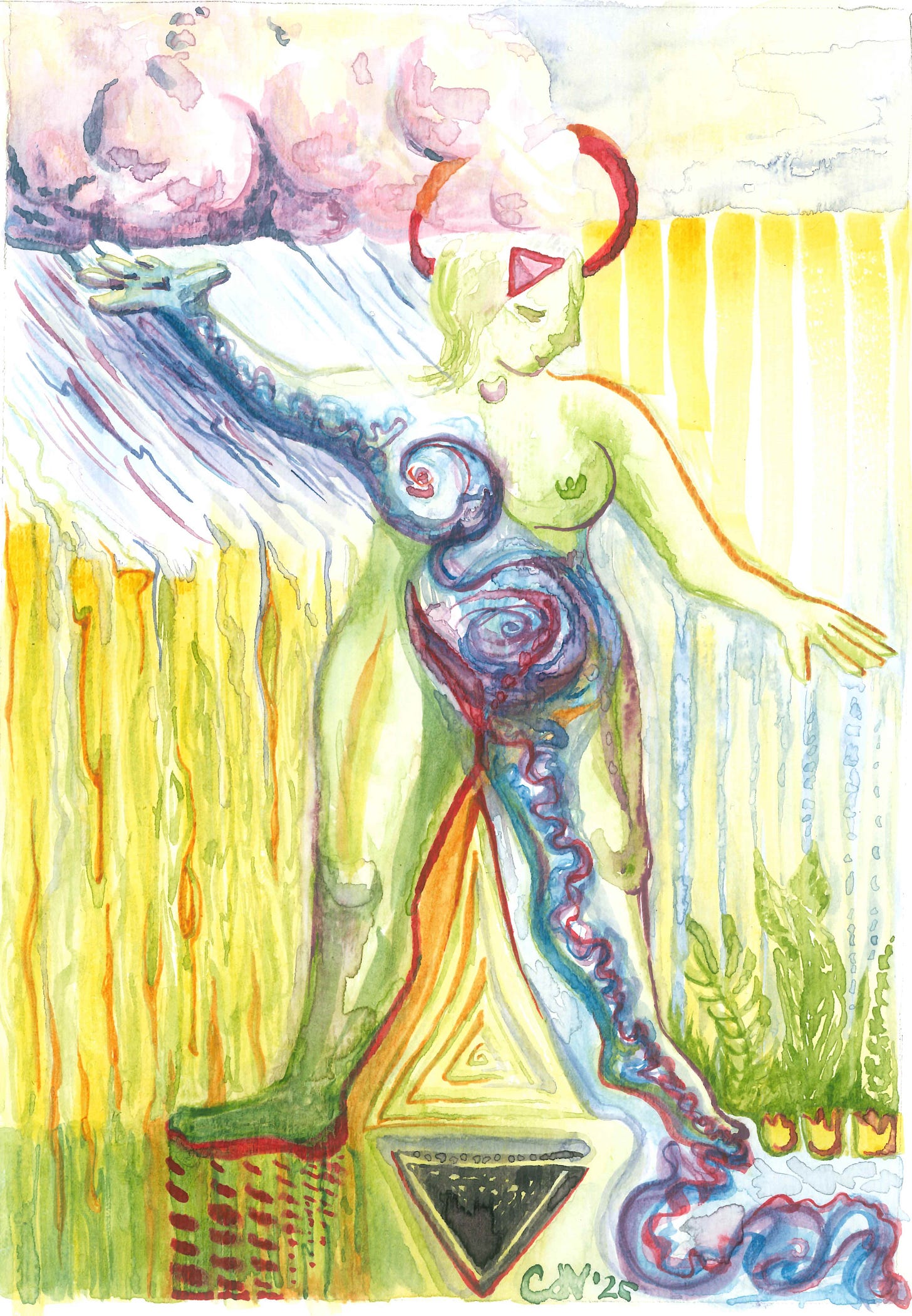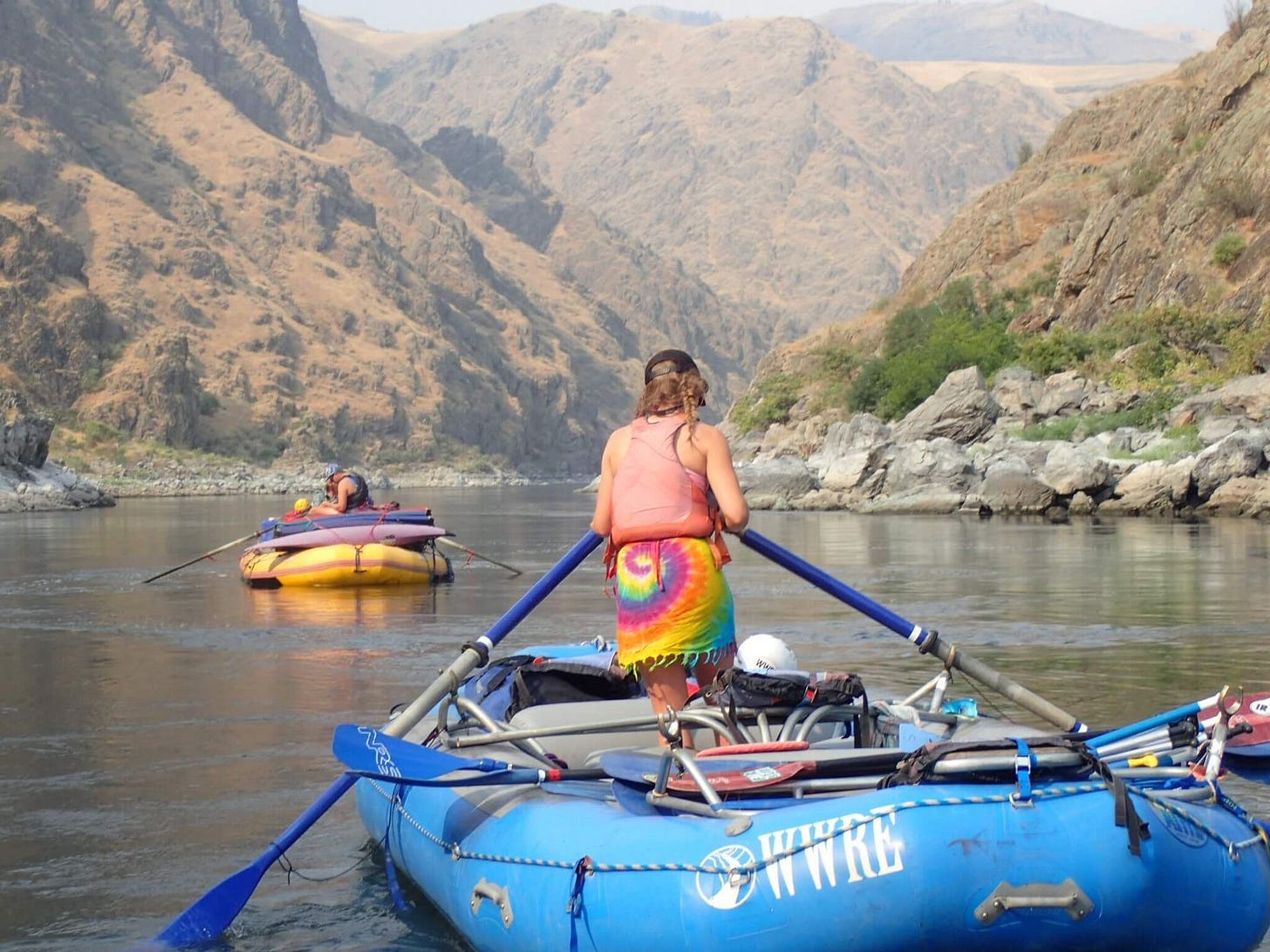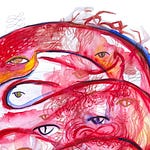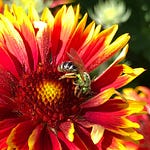“We don’t have to pattern toward fear,” says my friend Robin Pace early in this 20th episode of Kinward podcast, recalling an incident where she flipped an oar boat in the middle of a class IV rapid—on her very first trip as the new owner of Winding Waters, a whitewater expedition outfit based in Joseph, Oregon.
Don’t worry: this is how we learn.
The incident made for a good lesson for the crew on how to get a big boat right side up again—and how to respond in a moment of unexpected upset. Responses included a few giggles, a valuable dusting off of skills developed for just such a moment, and a certain amount of worry about the bread in the dry box.
This story is the story Robin tells to help us understand her definition of “play.” I don’t think she and I use the word “recreation” more than once or twice in this episode, but I’ll emphasize here that re-creation is what we’re talking about: the potential for play to reshape and widen us. Fun and games, for sure, and more than that: the kind of broad and wholistic and yes, sometimes “nervy” play that Robin is called to steward through her work, in conversation and collaboration with the rivers she loves.
"Robin has been in love with water since her first bath," Robin’s mom will tell you. And love is more than the fun and the games, as each of us who has loved can attest. There’s a reason they call it “falling.”
Thank goodness for play, then, which can help us encounter and experiment with the breadth of what’s possible when we connect deeply.
“If you think about little kids,” Robin says, “they play and they do something that feels a little scary, and maybe they fall and maybe they don’t, and both of those things enable actually for the same step forward. … [And] that step forward is not a straight linear line. To me a step forward is an opening, and a broadening, and an encompassing, and bigger.”
Robin Pace grew up among the many headwaters of the Snake River. She’s been guiding with Winding Waters River Expeditions since 2013 and has owned the business for one year this spring. She told me during this conversation that she’s nearing her 100th lap through Hells Canyon—where the Snake has carved America’s deepest river gorge. She has also done things like floated the Colorado through the Grand Canyon on a month-long trip in winter, brr. Her passion for sharing rivers with others continues to grow with every year. She loves cultivating conversation on riverbanks next to a plate of really good food.
I can affirm that if you flow down a river with Winding Waters, you’ll be eating some really, really good food.
I wanted to talk to Robin because I know her as a thoughtful maverick craftswoman of containers for connection between people, and between people and land and water. She’s a skillful steward of conversations among humans and currents and canyon wrens. I wanted to hear more about her vision and process for creating architectures of experience that enable us to be bigger together. Sturdier. Wilder.
And Robin wanted to talk to me about play.
I think it’s interesting that all the guests I’ve had on the show specifically to talk about their work with water—my beloved teacher Water—have emphasized play. “Humans play to learn.” Crews of “mud loving fun hogs” restore waterways and revive their own bodies and spirits at the same time. And now Robin and I discuss the art of preparing containers for the kinds of play that can open, stretch and re-create us.
This pattern, in the podcast, of water + play may be partly selection bias, but there’s something really fundamental here, too, about how life finds ways. Water is (literally) life, after all, as Robin and I emphasize in our Immersion episode a couple of weeks ago. And play, I think, is one way that life lets a little chaos in, a little risk in, so that we can stretch toward our edges and taste what’s emergent—so we can evolve.
Water sings grief songs and enables clearing and purging, too. There may be waters, as we discuss in this episode, that prefer to be left alone, or “left to their own means of connection,” as Robin puts it. Rivers are made and make their ways and find old ways in floods. And floods unmake us. In many of the old stories we all know about floods, ungovernable waters are framed as punishment. But there are so many flood stories about creation and renewal, too.

We get into all of it in this episode: the making and the unmaking. Robin shares some of the skills and practices she has cultivated to shape experiences that help us reap the rewards of re-creation: integrate the fun and games, call back our sturdiness, and shed what we’ve grown out of—while also growing our capacity to respond well in the midst of great disturbances and redistributions.
And we laugh. I’m so excited to share this 20th episode of Kinward Podcast with you.
Gratitudes for this episode include: to Robin for a midday springtime float through the deep terrains she knows so well; to the turning of the year for bringing us back around to the season of chorus frogs, swallows, and a new nest of starlings in my office roof; to my son, who recently asked my partner and me to “meet him” in a prayer “to be a flowing stream flowing around our ancient world;” to Erin Langley of Ancestral Acupuncture for her exquisite evocation of this Year of the Snake; and to all of you, for listening.
Play well and rest well, friends.














Share this post